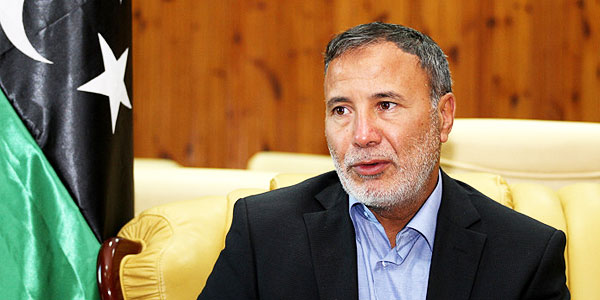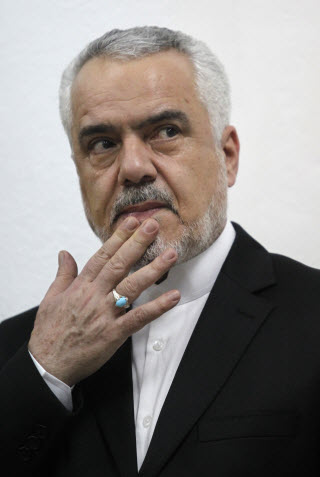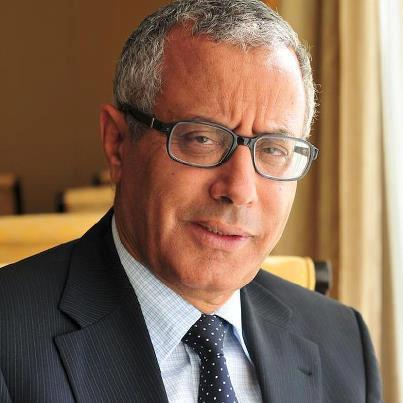By George Grant.

The head of the Libyan armed forces, General Yousef Mangoush, has no control over Bani Walid and . . .[restrict]civilians are being prevented from returning home by vigilante “gunmen”, Defence Minister Osama Juwaili has said.
In a scathing broadside, almost certain to be his last as defence minister ahead of Prime Minister-elect Ali Zidan’s expected announcement of a new government later today, Juwaili said the hilltop town was near-deserted as a result of the fighting and that the small number of people who remain are living in terrible conditions.
“The chief of staff has no control over the town and therefore armed men are able to prevent families from coming back”, the minister was quoted as saying by AFP, following a televised speech on Monday.
“The town is completely empty except for a small number of people who are living in tragic conditions; there is no activity; the impact of shelling is visible everywhere”.
He went on to describe soldiers controlling the checkpoint leading into the town as “gunmen”.
In his first public statement on Bani Walid, Juwaili claimed that as many as 40,000 people had been displaced by the conflict out of a town reckoned to be home to some 80,000 residents. As at 22 October, the International Committee of the Red Cross said that some 25,000 people had fled into the Urban area, to the northwest of Bani Walid, alone. The Libya Herald saw little sign of life on the morning of 25 October during a visit.
The remarks are deeply at odds with the statement made last Friday by army spokesman Ali Al-Sheikhi, who said that refugees were being allowed to return to the town and that no reports of any “violations” against them had been received. He added that should any such incidents take place, then an immediate investigation into them would be launched.
Last Thursday, the Libya Herald witnessed forces from the Libya Shield brigade attempting to prevent thousands of returning refugees from entering Bani Walid, one day after the town was declared liberated by General Mangoush.
Following altercations with several residents, one officer was seen shoving a pistol in the face of a civilian before firing it in the air. A 14.5mm heavy machine gun was then fired over the heads of the crowd, which contained several children. Other reporters witnessed similar scenes later in the day.
On visits to Bani Walid hospital on 8 and 9 October, this paper also saw first-hand the effects of shelling against civilian areas, including a 12 year-old boy lying on a hospital bed next to his 16-year old sister. Both had suffered severe burns when a suspected Grad rocket hit their home as they were preparing for breakfast.
Dozens of people are believed to have been killed during the fighting and hundreds wounded, although a lack of access into Bani Walid, including to the hospital in recent days, has made a precise figure impossible to obtain.
In spite of this, it is not believed that forces sought to deliberately target civilians during the conflict. During visits to forward positions to the east of Bani Walid on 19 and 20 October, both soldiers and commanders alike made explicitly clear their desire to avoid civilian casualties, but complained that fighters from the town were operating in built-up areas. They also frequently claimed that civilians were being used as human shields, although this has not been independently verified.
Much of the weaponry used by the army and allied brigades dates back to the Soviet era and lacks any kind of modern targeting technology.
The defence minister’s charge that Mangoush had lost control of his forces in Bani Walid, the bulk of whom hail from nearby Misrata, does appear to have some substance, however. Prior to the commencement of the full assault on 17 October, officials from the chief of staff’s office told this paper that Mangoush had not authorised a number of the prior attacks that took place on Bani Walid, the first of which commenced on 2 October.
A 48-hour ceasefire declared on 19 October to enable civilians to evacuate Bani Walid was also breached prematurely, with heavy fighting resuming by midday on 20 October. Mangoush subsequently claimed on 25 October that this was not in fact a ceasefire, merely the “end of the main military operation”.
He also defended the use of heavy weapons, including Grad rockets, in civilian areas, saying that the force deployed against Bani Walid was necessary and proportionate. “They [the armed forces] used the appropriate weapons to fight” Mangoush said. “When some fighters use certain weapons, we have to use the same weapons to stop the fight. It is a practical point.”
This is not the first time that Juwaili, who hails from the mountain town of Zintan, has publicly aired divisions with Mangoush. In an interview with the Libya Herald in June, the defence minister complained that he had virtually no effective authority over the armed forces, but was restricted to “sign[ing] the plans of the chief of staff”.
At the time, Juwaili criticsed the National Transitional Council for passing a law which, he said, made his position virtually irrelevant as far as military operations were concerned.
The legislation in question, Law 11, was passed on 13 February 2012. Under it, although the defence minister has overall responsibility for military matters in Libya, effective decision-making powers are vested in the chief of staff, who is “directly responsible for the technical aspects of organising, preparing, training, leading, managing and maintaining the combat readiness of the Libyan armed forces”.
[/restrict]










